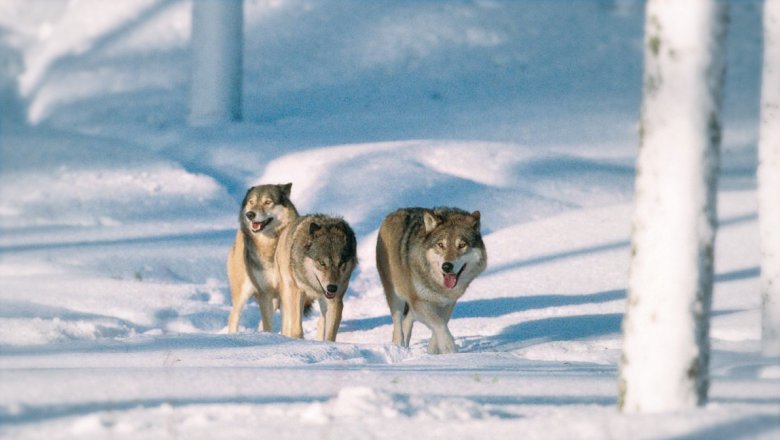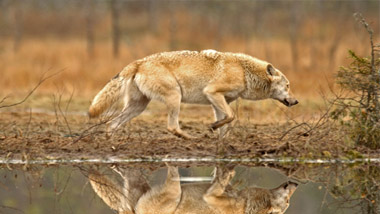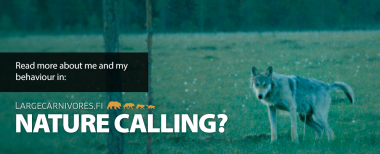A sick wolf might attack a human
The most recent fatal wolf attacks in Finland took place over a century ago in 1881‒1882 when a single wolf was thought to have killed a total of 21 people. The reasons for this wolf's behaviour are not known for certain, but it has been speculated that the wolf was sick, starving or even a wolfdog. There are also records of wolves attacking humans earlier in the 19th century.
Three reasons for why wolves attack humans have been observed:
- The wolf is sick. A sick wolf may act hostile or it may act tame. Most wolves that bite humans have rabies. A rabid wolf might bite several people, who then contract the potentially lethal disease. A healthy wolf tries to steer clear of people.
- The wolf is hunting humans. Cases have been reported in India, for example, where starving wolves have begun to hunt young children when their natural food sources have been exhausted.
- A wolf protecting itself or its pups can attack a person in exceptional circumstances.
Do not run away and do not give up
If you come across a wolf, this is what you should do:
- If you find yourself in a threatening situation or in the company of overtly intrusive wolves, attempt to leave. Remember, that even if the wolf seems tame and harmless, it is still a sizable wild animal and a large carnivore. Avoid running away, even if that is your first instinct. If you have no way out of the situation, climb on top of some high object such as a rock or, if you are close to a populated area, on top of a building. You could also climb into a tree.
- If the wolf continues to behave in a threatening manner and you cannot leave the situation, avoid direct contact with the wolf and try to remain as calm and fearless as possible. You should always try to leave the situation any way you can, or get the wolf to leave you alone.
- If the wolf attacks or bites you, shout loudly, try to make yourself look as big as possible and wave your hands in a threatening manner. Do not give up! You must either scare or fight the wolf off so that it will abandon the attack. When a wolf faces fierce resistance it will retreat. Of course, this only applies to healthy wolves: wolves with rabies will probably just keep attacking.
If you come across a wolf that is acting aggressively, notify emergency services immediately (tel: 112). If the wolf acts in a non-threatening manner, report your sighting to the large carnivore contact person of the local game management association.







